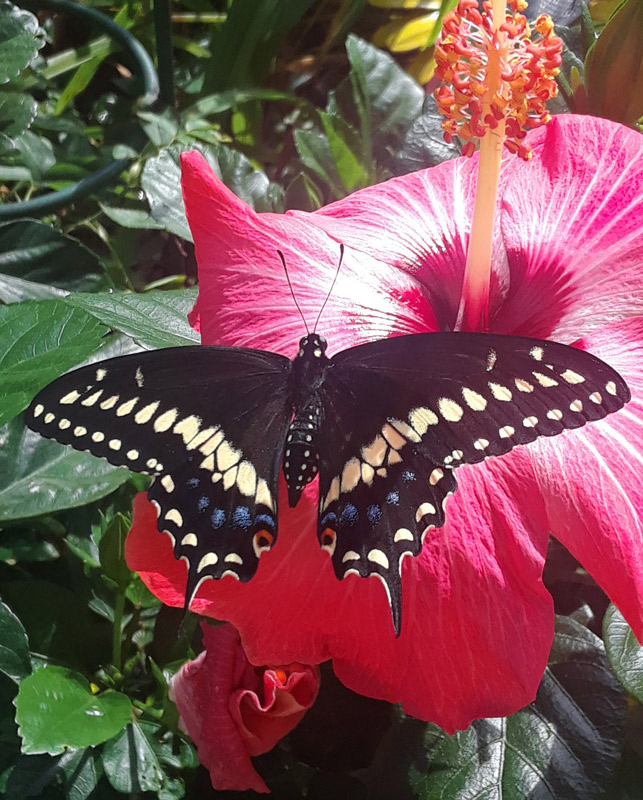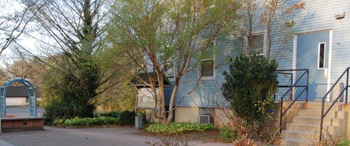GCNJ Conservation Pledge
The Garden Club of New Jersey, Inc., pledges to protect and preserve the natural resources of Planet Earth through conservation awareness, education, and advocacy so that our members may become responsible caretakers (stewards) of the environment, providing resources to conserve, restore and cherish the quality of our air, water, forest, land and wildlife for present and future generations.
October 12, 2020
Board of Directors
New Brunswick, New Jersey
GCNJ’s History of Civic Activism and Advocacy
The GCNJ has a long history of civic activism and advocacy …
1925 – Clubs banded together to fight the destructive pest, the Tent Caterpillar
1929 – Endorsed a Bill in the State Assembly to restrict billboards along highways
1935 – Worked to get Goldfinch as the New Jersey State Bird
1948 – Helped establish Greenbrook Sanctuary overlooking the Palisades
1950 – Worked to get Red Oak Tree as the New Jersey State Tree
1955 – Aided in the preservation of Mettler’s Woods, a 136 acre tract
1960 – Fought a proposed jetport and preserved The Great Swamp for wildlife
1964 – Funded Scholarships to the New Jersey School of Conservation
1971 – Held first Environmental Conference at Rutgers University
1986 – Members protest plans to commercially develop Rutgers Gardens
1992 – Members protest expansion of Atlantic City Airport to protect Pine Barrens
2009 – Declared April as GCNJ Environmental Awareness Month.
2016 – Worked to get Black Swallowtail Butterfly as New Jersey State Butterfly
2020 – Adopted a Conservation Pledge to protect and preserve the environment through education and advocacy

ALERTS:
Caven Point Bird Sanctuary at Liberty State Park –
Stop the Privatization and Development of NJ State Parks. Caven Point Peninsula is a bird sanctuary located in the Atlantic Flyover and considered an important stop over for thousands of birds during their long and arduous annual migration. Recently, there has been a proposal to develop Caven Point Sanctuary at Liberty State Park in Jersey City for the expansion of Liberty National Golf Club, a private members-only golf course. The recent NJ Stopgap Budget (on page 95) permits private ventures at any State Park by soliciting bids from interested developers to help pay for budget shortfalls. The possibility of privatization of NJ parkland is worrisome. Land preservation and stewardship of our open spaces are critical to the health and wellbeing of New Jersey’s residents and the natural environment.
Click Here for additional information.
Spotted Lanternfly –
The Spotted Lanternfly is an invasive pest found in New Jersey and neighboring states. This destructive pest was originally found in China, India, Japan, South Korea, and Vietnam. Since being introduced to our area in 2014, it has rapidly spread. The young nymphs feed on a wide range of plant species causing serious concern over damage to our country’s grape, orchard and logging industries. The pest has been detected on many host plants, including apple, plum, cherry, peach, nectarine, apricot, almond, grapes, pine, oak, walnut, poplar, and tree of heaven. Be alert to help stop the spread.
Click Here for additional information.
Oak Leaf Scorch –
Our NJ State Tree, the Red Oak (Quercus rubra) is in danger. Many specimens of the Red Oak, are infected and dying from Bacterial Leaf Scorch aka Xylella fastidiosia. GCNJ asked Rutgers Gardens’ Bruce Crawford for guidance on the issue. His advice is “aside from keeping the plants healthy (no parking cars under tree canopies [extreme weight around the tree compacts the roots], proper pruning, and adequate irrigation), the only course of action at present is an injection of antibiotics done in late May. The injection needs to be done each year so it prevents the xylem from getting ‘plugged’ and allows water to pass on to the leaves and photosynthesis to continue. To date, some of the other oak species have been diagnosed with Bacterial Leaf Scorch, as have Lindens and Sycamores, but none are as susceptible (to my knowledge) as Quercus rubra. When thinking shade trees, you are also thinking in blocks of 30 year minimums, since that is how long it takes for a seedling to mature to large shade tree proportion. If the climate continues to warm some trees, such as Sugar Maple, will not thrive in NJ as they do currently. All stuff to consider for the future!”
Click Here for additional information.
Plant America with Trees … NGC Initiative –
The GCNJ Environmental Committee began promoting the Importance of Trees in 2019 through a series of articles printed in the NewsLeaf. To date, GCNJ has encouraged members to plant native trees in their communities and included tips for successful growth. This initiative is also being promoted by The National Garden Club through their 2020 program known as Plant America with Trees.
Click Here for additional Information from NGC.
Pollinators … Ban on Toxic Neonicotinoids –
These types of harmful insecticides are systemic chemicals which are absorbed by the entire plant and dispersed through it’s tissue, including the pollen and nectar. This makes consuming the toxic residue deadly to pollinators during pollination. Currently, the New Jersey bill as written does not include agricultural crops. However, the ban would impact the landscape industry which is the largest abuser of neonicotinoid overuse in the state. Avoid pesticides in your garden.
Click Here for additional information.
ENVIRONMENTAL PARTNERS
The Friends of Liberty State Park (FOLSP) –
The “FOLSP” is an all-volunteer, 501c3 non-profit organization dedicated to protecting, improving and beautifying Liberty State Park (LSP). Established in 1988, this committed group of volunteers has been fighting attempts to privatize and commercialize LSP for the past 30 years. Most recently, they are working towards the passage of the Liberty State Park Protection Act, legislation that would protect the park from private and commercial development.
This magnificent state park was gifted to the nation to celebrate our bicentennial in 1976. Liberty State Park is considered a worldwide destination as it looks out to the Statue of Liberty, Ellis Island and the Manhattan skyline. This beautiful landmark is recognized for its historical, cultural and environmental importance and is a key migratory route along the Atlantic Flyway for countless bird, butterfly and wildlife species. To learn more about the Friends of Liberty State Park visit their website at www.folsp.org
Click Here for information on Liberty State Park’s Volunteer Gardening Program.
Scenic America –
The only national 501c3 non-profit organization dedicated solely to preserving and enhancing the visual character of America’s communities and countryside. In working to protect scenic conservation, they promote tree conservation, advocate for roadways lined with native plants and wildflowers, preserve open spaces, and protect environmentally important sites. Scenic America has signed on to protect New Jersey’s Liberty State Park from private and commercial development. On behalf of The Garden Club of New Jersey and Friends of Liberty State Park, we are thrilled to have Scenic America join us along with 92+ non-profits and other organizations in the coalition to pass the Liberty State Park Protection Act and Save Caven Point. To learn more about Scenic America visit their website at www.scenic.org




